Five topics in recent days seemed to warrant some attention by those looking for signs of the possible renewal of the faith in formerly atheist Russia:
1) remarks by Russian Orthodox Metropolitan Hilarion Alfeyev on conscience, an infant’s heartbeat, abortion, and the perennial Christian teaching (as well as an interesting much longer interview);
2) a new concert album dedicated by Russian Orthodox opera soprano Svetlana Kasyan to the encyclical of Pope Francis, “Brothers all” (“Fratelli tutti,” published in Assisi, Italy, at the tomb of St. Francis of Assisi, by Pope Francis on October 3, 2020, one year ago; full text here);
3) news from Kazan, a city 600 miles east of Moscow, the capital of Tatarstan, where a miraculous icon of Our Lady of Kazan is preserved. Known as “The Protection of Russia,” this icon was lost to Russia from 1917 to 2004; then Pope John Paul II, who had kept it for 11 years in his apartment in the Apostolic Palace, returned it to Russia; there are two days each year in Russia dedicated to the feast of the icon of Our Lady of Kazan, July 21 and November 4, yesterday;
4) as a gesture of good will toward the Catholic Church, a charitable foundation of the Russian Orthodox Church during 2021 translated into Russian a book on prayer composed by Pope Francis; in order to assist in constructing this small bridge of mutual respect between the two Churches, the Urbi et Orbi Foundation helped support the translation into Russian and the printing of the book; the book was presented to Pope Francis personally by Metropolitan Hilarion on October 6. (link)
5) evidence of a flood of new converts to the Orthodox Churches in recent months. (link)
This suggests that there may be a profound longing among people for the type of mystical presence of the Lord that is at the carefully protected center of the old liturgy, via the emphasis in the Psalms of King David, and is at the center of the eastern liturgy, as Pope Francis himself said in 2013 (link):
“In the Orthodox Churches, they have retained that pristine liturgy, which is so beautiful. We have lost some of the sense of adoration. The Orthodox preserved it; they praise God, they adore God, they sing, time does not matter. God is at the centre, and I would like to say, as you ask me this question, that this is a richness. Once, speaking of the Western Church, of Western Europe, especially the older Church, they said this phrase to me: Lux ex oriente, ex occidente luxus. Consumerism, comfort, they have done such harm. Instead, you retain this beauty of God in the centre, the reference point. When reading Dostoevsky – I believe that for all of us he is an author that we must read and reread due to his wisdom – one senses what the Russian soul is, what the eastern soul is. It is something that does us much good. We need this renewal, this fresh air from the East, this light from the East. John Paul II wrote about this in his Letter. But many times the luxus of the West makes us lose this horizon.” (Pope Francis, July 28, 2013)
For this reason, the bishops of the Catholic Church, even the Bishop of Rome, despite the arguments made by some liturgists during the years from 2013 to 2021, might wisely continue to permit the celebration of the old liturgy, with its profound reverence, its praise of God, its placing of God at the centre. —RM
1. Hilarion
Metropolitan Hilarion (Alfeyev), chairman of the Department of External Church Relations (DECR) of the Moscow Patriarchate, on his weekly television program Church and the World was asked for his opinion why the administration of “Catholic Biden” was so insistent on repealing the “heartbeat law” in Texas. The Metropolitan’s answer is posted in Russian on the website of the DECR at (link). The following is a Google translation of the question and answer:
E. Gracheva: Vladyka [“Father” in Russian, literally “My Lord” or “Powerful and Holy One”], in the United States of America, the state of Texas in the literal sense of the word is now fighting off an appeal by the federal Department of Justice, which demands the repeal of the so-called “heartbeat law” adopted in this state. It states that it is forbidden to have an abortion from the time when the baby’s heartbeat is heard. Why, in your opinion, is the administration of the Catholic Biden so insistent on repealing this law, and in the state of Texas?
Metropolitan Hilarion: When they talk about the Catholic Biden, I always want to ask the question: what, in fact, is Biden’s Catholicism?
The Catholic Church is against abortion, and Mr. Biden is for it.
Does he do it as a Catholic or as the president of the United States?
Does he do this proceeding from the dictates of his conscience, or proceeding from the political situation?
A person cannot call himself a Catholic, and at the same time violate and call for violation of the fundamental norms of Christian morality.
The Roman Catholic Church, like the Orthodox Church, opposes abortion as such.
If in one of the American states there is still a law that somehow protects the rights of unborn babies, then the Catholic Church, like the Orthodox Church, only welcomes the preservation of this law.
But the American administration is now trying to fit all the states under one standard, which is guided by liberal norms.
According to liberal norms, the life of an unborn baby is worthless and does not need protection, the most important thing is to respect the rights of women.
In other words, it is said that a woman has the right to dispose of her body, she has the right to decide on an abortion and no one should interfere with her in this.
All the legislation of Western countries is moving in this direction.
The Catholic Church in the West, including the United States, the Orthodox Church and many Protestants stand up to protect unborn babies, saying that abortion is murder, and everyone, including those who have not yet been born, has a fundamental right — the right to life.
This, unfortunately, is often forgotten by modern human rights activists.
They defend all sorts of rights, for example, the right of a homosexual couple to adopt a child, the right of parents to have sex-reassignment surgery on their minor child — all these are considered human rights, and the fundamental human right to birth and life is rejected.
[End, selection from recent interview with Hilarion]
2. Svetlana
Russian opera singer dedicated a music album to the Pope (link)
MOSCOW, November 2 – RIA Novosti. The first solo album of the opera singer Svetlana Kasyan, Fratelli Tutti, dedicated to Pope Francis, will be released on music platforms on December 17, 2021, on the day of the 85th anniversary of the pontiff, the singer told RIA Novosti.
“This is my first solo album, it was recorded in June in a studio in Los Angeles,” Kasyan said. “Fratelli Tutti means ‘All are brothers’ in Italian. This was the name given to the last encyclical of the pontiff in October 2020. Francis appeals not only to Catholics, but to believers all over the world, reminding that people of different religions and nationalities need to live in peace. The album is made in this concept: it includes compositions in different languages — Italian, Georgian, Armenian, Hebrew, Latin. The album is dedicated to the Pope and will be released on December 17 on the Pope’s birthday, when he will turn 85 years old,” Kasyan said.
The husband of the singer and producer of the album, Leonid Sevastianov, who is chairman in Russia of the World Union of Old Believers, noted that the singer and the pontiff have friendly relations, and that Pope Francis is a longtime admirer of her talent. In 2019, the singer was awarded the Knightly Order of St. Sylvester by Pope Francis for her services in the field of culture.
“The Pope is a big lover of opera, he listens to Svetlana’s tracks, he also loves Argentine tango — the composition La Cumparsita in the album is dedicated to Pope Francis,” Sevastianov said. “Svetlana has been singing in the best opera houses in Italy for 12 years, she was lucky enough to get an audience with Pope Francis in the Vatican, to get invaluable advice from him,” Sevastianov said.
Russian opera singer (soprano) Svetlana Kasyan was born on July 24, 1984 in Batumi, Georgian SSR. The singer graduated from the Moscow State Conservatory named after P. I. Tchaikovsky, and trained with Placido Domingo. In 2010, Kasyan made her debut at the Bolshoi as Kupava in Rimsky-Korsakov’s The Snow Maiden, and later performed as Fata Morgana in The Love for Three Oranges by Sergei Prokofiev, which premiered in Chicago in 1921) and Nastasya (The Enchantress by Pyotr Tchaikovsky). In 2011, Svetlana made her debut in Italy in the city of Bari in Beethoven’s Ninth Symphony. The singer performed on the stages of the Teatro Regio of Turin, the La Fenice Theater in Venice in the title role in the opera Tosca, in Modena, and at the Bologna Opera House.
In 2013, Kasyan gave a recital in Rome, organized under the auspices of the Italian President and the Pontifical Council for Culture (and supported by the Urbi et Orbi Foundation). On the same day, she received a personal audience with Pope Francis in the Domus Santa Marta. In 2017 and 2018, the Pope received the singer again at an audience and elevated Kasyan to the rank of Dame of the Order of Saint Sylvester for services to the Church and Catholicism.
3. Kazan
Concerning the miraculous Icon of Kazan (a gift of Pope John Paul II)
(received from Peter Anderson, who resides in Seattle, Washington, and who is a columnist for Inside the Vatican magazine)
Yesterday, November 4, was the second feast day of the year in Russian Orthodoxy for the Kazan Icon of the Mother of God, the feast day that honors the role of the Kazan icon in the liberation of Moscow in 1612.
It is also the Russian public holiday of National Unity Day.
The first annual feast day, July 21, commemorates the discovery of the original Kazan icon in Kazan by the young girl, Matrona, in 1579.
For yesterday’s feast, the Orthodox Divine Liturgy was celebrated in the newly reconstructed Cathedral of the Mother of God Monastery at the site where Matrona unearthed the original Kazan icon from the ground. A video of the entire service, beautifully sung, can be watched at (link).
Due to the pandemic, the traditional procession from the Annunciation Cathedral in the Kazan Kremlin to the Cathedral at the Mother of God Monastery was not held. Instead, there was a short procession around the Cathedral of the Mother of God Monastery followed by veneration of the miraculous icon (beginning at 3:05:20 in the video).
The special guests at the service were representatives of various Local Orthodox Churches to the Patriarch of Moscow. (link) They were as follows:
Metropolitan Niphon of Philippopolis (Patriarchate of Antioch)
Bishop Anthony of Moravich (Patriarchate of Serbia)
Archimandrite Seraphim (Shemyatovsky) (Church of Czech Lands and Slovakia)
Archpriest Daniel Andreyuk (Orthodox Church in America)
Archpriest Kakhaber Gogotishvili (Patriarchate of Georgia)
Bishops of the Moscow Patriarchate who were present included: Bishop Leonid of Argentina and South America; and Bishop Gedeon, vicar bishop of Kyiv. The service was televised live not only in Tatarstan but also elsewhere in Russia.
On the evening of November 3, a vigil service was held before the miraculous icon. The foreign visitors participated in the service. (link) —Peter Anderson
Below, photos of the meeting between Pope Francis and Metropolitan Hilarion in Rome in early October. Hilarion brought with him as a gift to the Pope a book written by Pope Francis in Italian on prayer, translated into Russian. The project was supported by the Urbi et Orbi Foundation, which is part of our new Unitas project. You can see the Foundation named on the title page of the book. To support our Unitas project, click here
4. A Gift: Book on Prayer by Pope Francis translated into Russian (link)
Metropolitan Hilarion of Volokolamsk, President of the Department for External Church Relations of the Moscow Patriarchate, visited Rome from 3‒6 October…
Metropolitan Hilarion was received in a private audience with Pope Francis on 6 October.
At the end of the meeting, he presented to the Holy Father the gift of a publication entitled “Molitva”, the Russian language translation of the Holy Father’s book “La preghiera” (“Prayer”), with a preface by Patriarch Kirill, which had been published by the Libreria Editrice Vaticana (the Vatican Press) in 2019.
Commenting on the book, in an interview with Vatican News, Metropolitan Hilarion affirmed: “The experience of prayer is something that unites all Christians. And the lessons that Pope Francis imparts to his flock are of value to Russian readers.”
The book, which will be shortly launched in Russia, is an initiative of the Joint Working Group for Cultural Projects between the Holy See and the Moscow Patriarchate.
During his stay in Rome, Metropolitan Hilarion also met with Cardinal Kurt Koch, President of the Pontifical Council for Promoting Christian Unity, at the offices of the Dicastery.
5. Conversion
Today we received the following email from St. Vladimir’s Seminary, an Orthodox seminary in Yonkers, New York, USA (link and link). Metropolitan Hilarion will be at the seminary on the morning of November 12, for a seminar on his Christology; it is open to the public: “This November 12, St. Vladimir’s Seminary welcomes Metropolitan Hilarion Alfeyev and top biblical scholars to campus for a free, public event centered on Holy Scripture. Join us for the event, Searching the Scriptures, in celebration of Metropolitan Hilarion’s monumental series Jesus Christ: His Life and Teaching (SVS Press).” (link) Attendance is free, but you must register beforehand if you plan on joining whether in person or online. )
The emailed letter speaks of a striking spike upward in the number of recent requests from non-Orthodox to begin the discernment process leading to entering into communion with one of the Orthodox Churches.
This seems significant, so I publish the letter here as a bit of news, with the thought that its contents might be cause for reflection among Catholic bishops, also in Italy… —RM
[Here follows the emailed letter I received today from St. Vladimir’s]
Christ is in our midst!
Right now, an “Orthodox moment” is happening around the world, and we can’t afford to let this opportunity escape us.
Seekers are flocking to Orthodox Churches, and our alumni in North America and abroad are reporting record numbers of catechumens and baptisms in their communities, in spite of the ongoing pandemic.
We need well-trained priests and lay leaders to guide this influx of seekers home and minister to the newly illumined in a darkened world. And your generosity is making it possible.
Father Christopher Moore was a student leader of the Seminary’s St Innocent Mission Society when he and his wife, Mat. Jennifer, lived on campus. Not long after Fr Christopher graduated in 2018 they flew to Korea, where they are now Orthodox Christian Mission Center (OCMC) missionaries serving at the St Dionysios of Zakynthos Orthodox Church in Ulsan.
Father Christopher says they came to St Vladimir’s with the intention of taking a formative experience into the mission field:
Having the chance to live in that vibrant Orthodox community—the balance of students and faculty from different jurisdictions, Eastern and Oriental, allowed me to broaden my perspective a lot about Orthodoxy in the world, its practices and teachings. And my pastoral theology classes about cross-cultural settings prepared us for this role of ministering across cultures.
The Moores spent their first term studying the Korean language, leading the parish, and making huge adjustments when the first Covid cases emerged in Korea in February of 2020.
Imagine what could happen if St Vladimir’s Seminary could prepare even more leaders like Fr Christopher. Orthodoxy could bloom and grow around the world, as well as across North America.
We ask you to support Urbi et Orbi Communications with a small or large contribution, at this difficult time, in order…
(1) to keep Inside the Vatican Magazine (which we have published since its founding in 1993, 28 years ago) independent and comprehensive… a unique lens into the Church and the World. Now available to you digitally as well as in print!
(2) to ensure that Inside the Vatican Pilgrimages can keep creating encounters for you with the Heart of the Churches, the homes of the Saints, and the Living Stones — the people — of whom the Church is built. Now offering you virtual pilgrimages from your home computer! (see below for more information)
(3) to help to bring the Churches closer together by “Building Bridges” to heal the schisms of the Church — East and West — through our non-profit Urbi et Orbi Communications.
(4) to sustain our occasional news and editorial emails, The Moynihan Letters, bringing the latest valuable information and insight like no other source to thousands of readers around the world.
Please, do not overlook this opportunity to work with us. We very much appreciate your gift, whether small or large.
Thank you.
In Christ,

Dr. Robert Moynihan and the rest of the Urbi et Orbi Team

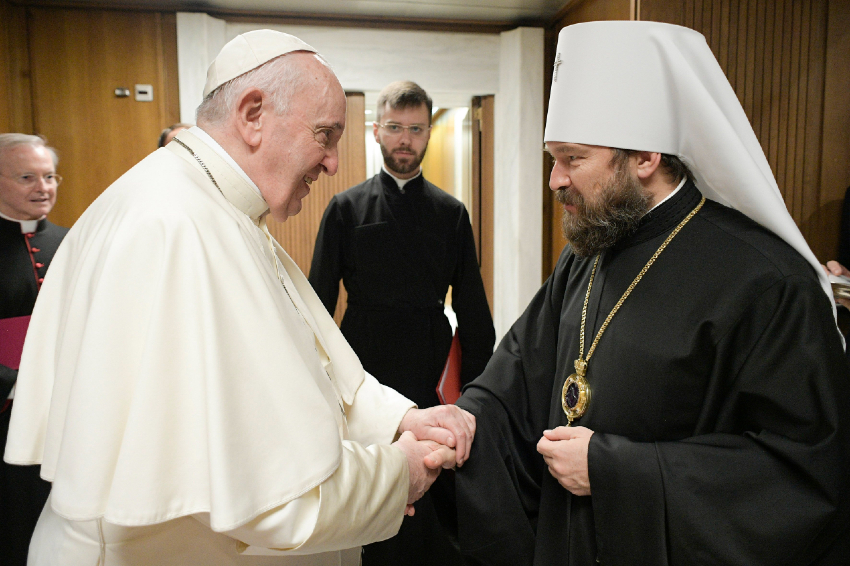

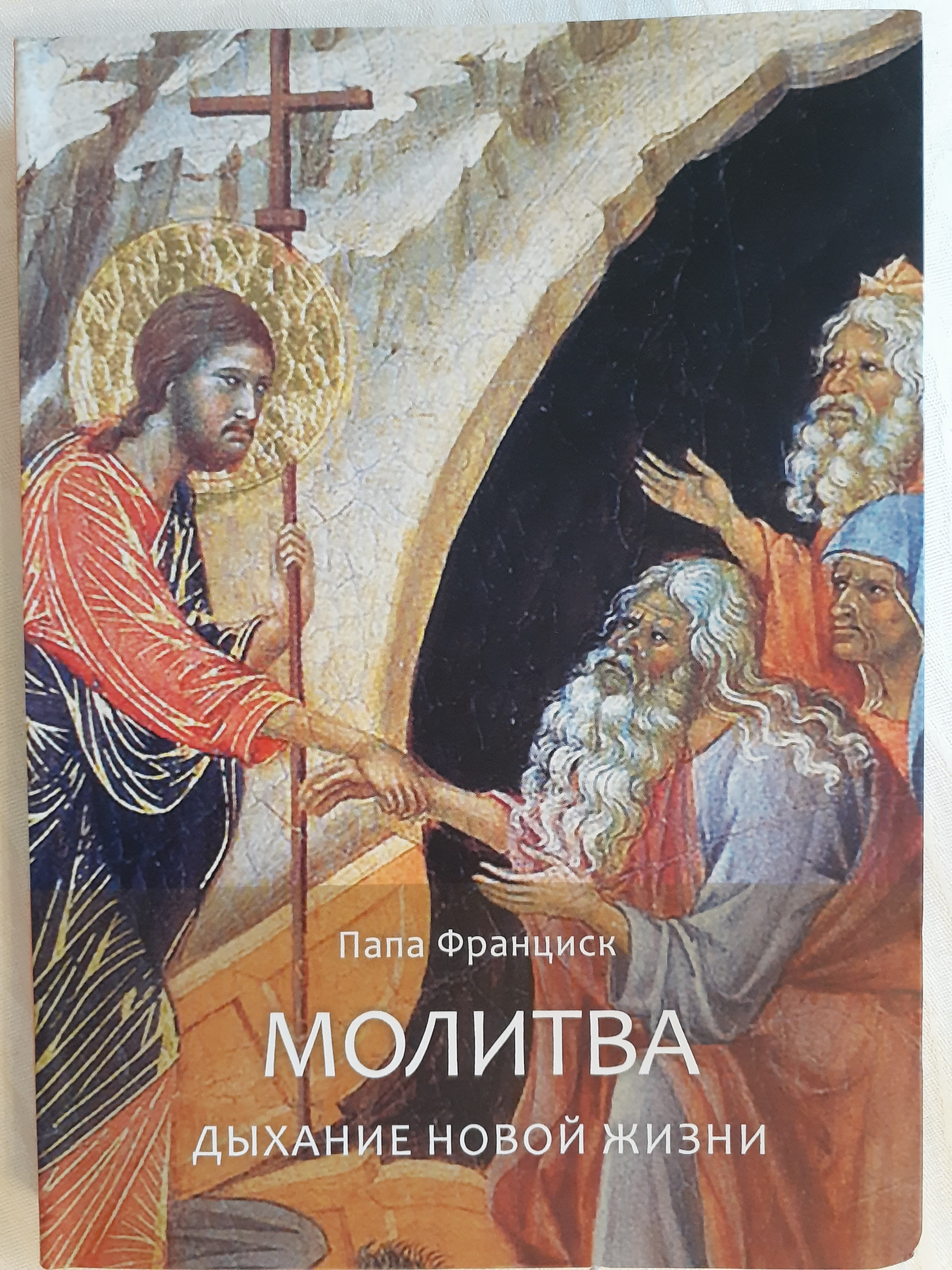
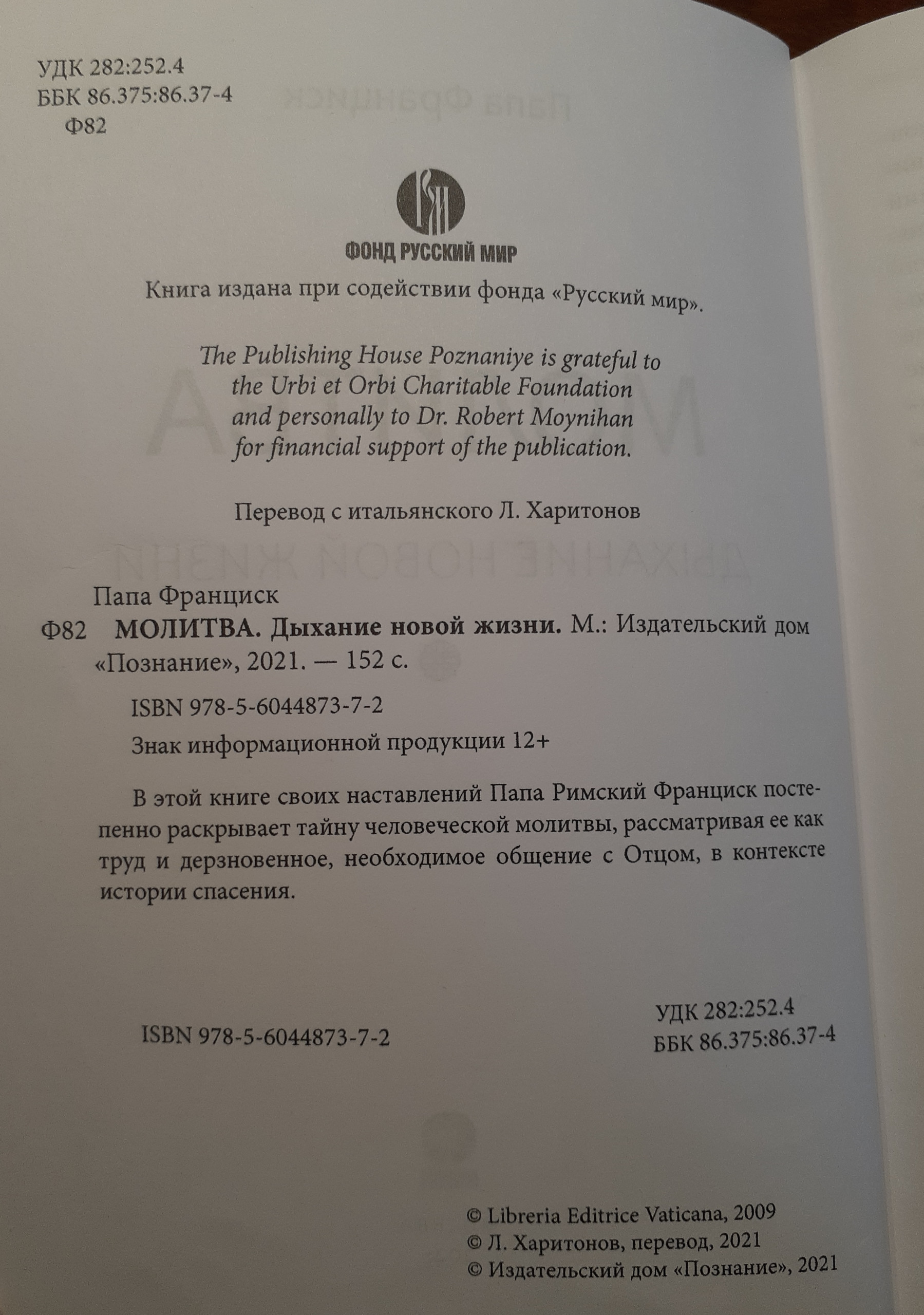
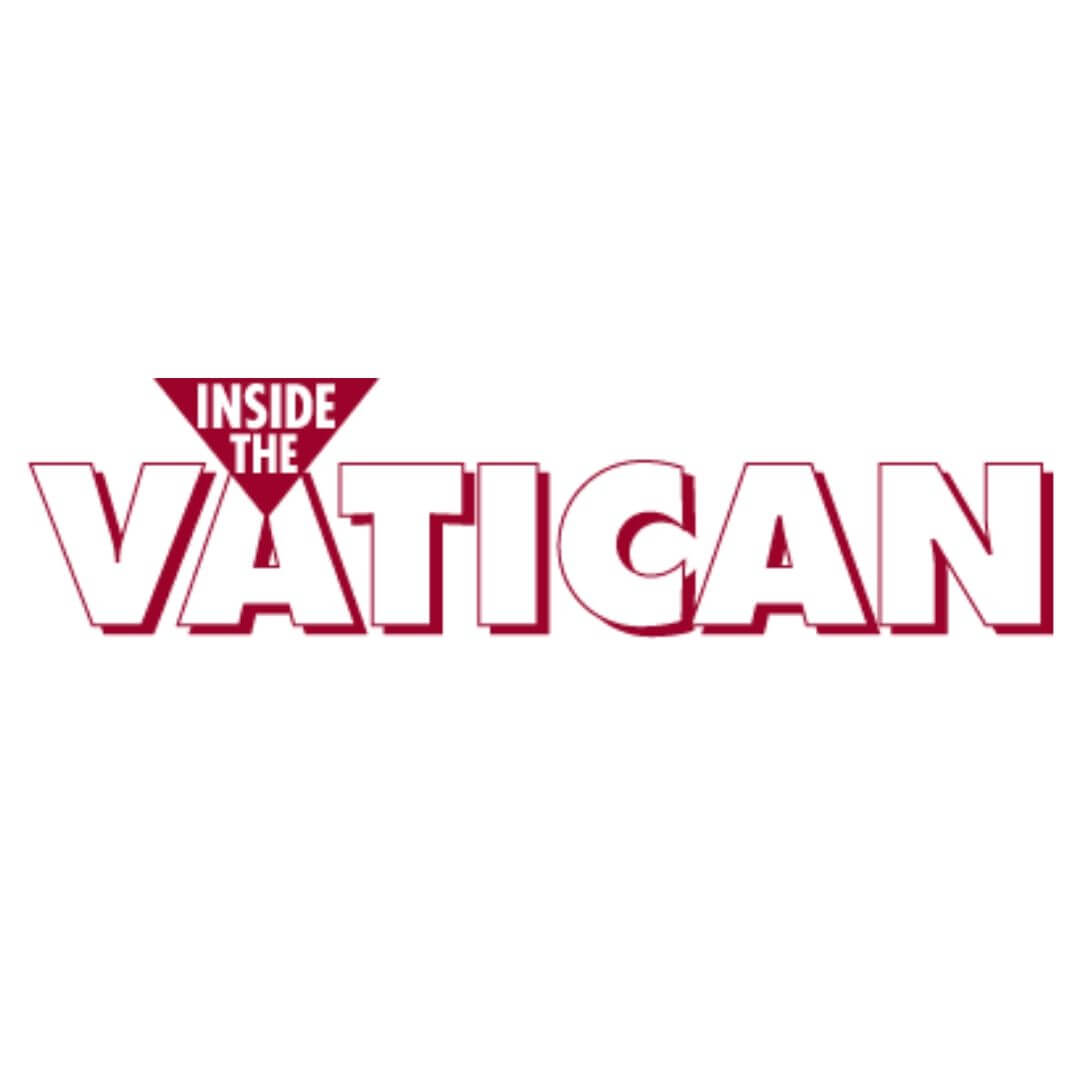
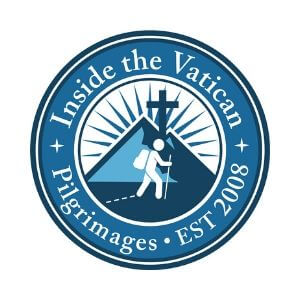

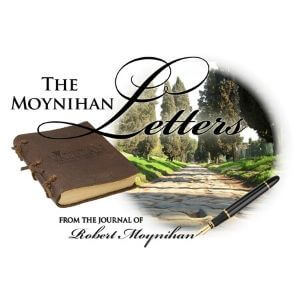




Facebook Comments